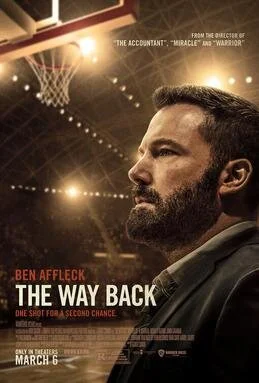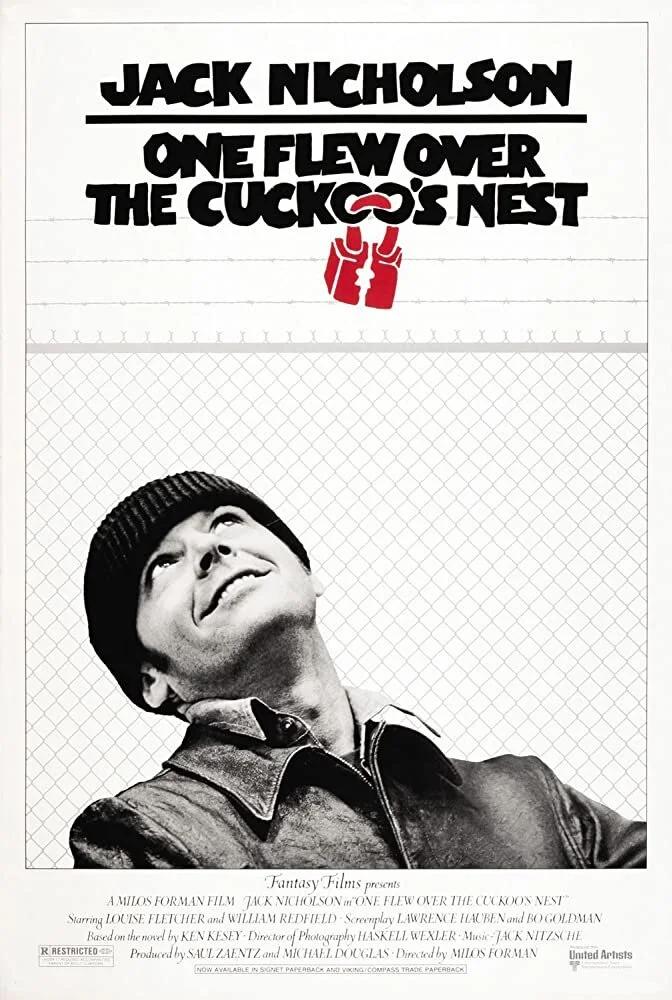'The Way Back' finds a unique path
Inspirational sports dramas have become as familiar as water. It's refreshing to drink, but too much of it yearns for us to consume something of a different taste. Gavin O'Connor has a particular flavor that's familiar yet unique enough to allow us to absorb something we wouldn't think we'd get. "The Way Back" is one of those films where the trailer isn't necessarily providing the audience all the information that will ruin the film yet can harm the picture's draw because its outline is painfully recognizable. To enjoy the movie for what it is, you have to stick around for the third act. Even with as much as it plays things differently, the genre tropes can't help but hinder the narrative in some slightly predictable territory. Yet, it will win you in the end.
Anyone familiar with Ben Affleck's recent revelations regarding his struggle with alcoholism will understand what the plot to the film is. Ben's character, Jack Cunningham, is a construction worker that's heavily addicted to alcohol. One day he gets a phone call via a priest from his alma mater, he wants Jack to coach the new basketball team he was once the star player of. Blah, blah, the team begins to win, blah blah, Jack stops drinking, you know it, I know it, everyone knows it. Where "The Way Back" finds its voice is in its grounded realism. There are no inspirational speeches. It's just a coach cussing you out to your face. Anyone who's played ball or any sport will know that your coach is a good guy, but he doesn't mince words regardless of a school's code of conduct. Bobby Knight ring any bells? Here is a film that shows you why swearing in a movie works; perhaps it is even essential.
Far too many sports flicks play it safe. Although the coach is tough as nails, he dare not say "fuck" in the film, or the distributors won't make their money back. Warner Bros Pictures seems to be aware that audiences aren't interested in seeing another PG-13 "Hoosiers," so they allowed the little R tag to generate some interest. That and Mr. Affleck's wall-breaking battle with addiction, but we'll get into that later. Losing the language loses a movie's authenticity given this subject that O'Connor doesn't shy away from providing a much welcome sense of reality and depth to its characters. To add to the film's authentication is its muted sense of color depth. Although set in Los Angels, cinematographer Eduard Grau goes with a grey palette, only raising the RAW code of the camera slightly to bump up some levels leaving a watered-down look reflecting Jack's bleary world of drinking.
Jack's addiction is reasonably accurate. As someone who has struggled with addiction, I know the feeling of needing a drink every second of the day. In my case, I wasn't drinking as much as Jack, who is a nonstop functioning alcoholic. On his way to work, his drive home, when he takes a shower, Jack has a drink on him—often switching between vodka and beer. After drinking so regularly, you become numb to its effect. You can't feel anything until you're deep into your eighth beer or halfway through your bottle of vodka. The only thing you look forward too is drinking. Everything else is just one long drag to when you drink at night and let loose. One thing that we like about Jack as a drunk is that he's not the typical cinematic unlikeable jerk when intoxicated. Maybe you could even say he's more pleasant than usual when on the sauce. With some people, you can't tell when they're drunk until they go far off the deep end. Still, I do question how Jack never got a DUI or failed to gain fifty pounds in fat when downing can after can of beer like it was engine oil. Also, how is he not hungover every day?
Much like "Warrior," Gavin O'Connor is capable of telling a familiar sports story through a practical lens that many other filmmakers fail to find on their own. When you reach the final half of the movie, it takes a beautiful sharp left turn that hits you like a gut punch. The pitfall in this, however, is we still know the outcome of most of the story despite its finale. We know Jack is going to lift these kids' spirits and vice versa. We are aware of the slow-motion buzzer ringing, basketball approaching the hoop moment. The banter between the players is your generic slang except for a few F-bombs thrown in. Thankfully "The Way Home" doesn't mainly focus on the team or the big game. That's not what the story is about. "The Way Home" is about how we deal with pain and what inspires us to move beyond our suffering beyond the basketball court. The court is just the background for what is otherwise Jack's battle with his past. I wish the film could see something other than sports to inspire Jack. It's too easy of a route to go, which hurts what is otherwise a powerful film about addiction.
*** out of ****


